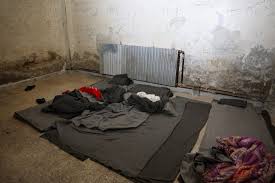Based on hundreds of leaked documents, a new investigation sheds light on how the intelligence services operate outside the formal state apparatus—financially, administratively, and politically.
At first glance, the branch’s paperwork appears clumsy and bureaucratic. But beneath the surface lies a system that controls the lives of thousands. Branch 251 runs on its own budget, separate from official state finances, and funds itself through informant networks, extortion, and “confiscated funds”—usually in dollars and euros.
Among the revelations:
- Informants receive rewards as low as $0.20, while a select few are paid thousands—raising ethical questions about exploitation, loyalty, and abuse.
- The branch monitors everything from Facebook posts to opposition media, often relying on open-source or dubious reports to justify action.
- In one instance, a fabricated claim by a pro-Hezbollah journalist about an Israeli spy entering Syria was debunked not by Syrian intelligence, but by a Saudi fact-checking platform—ironically cited by the branch itself.
Perhaps most disturbing is the management of seized foreign currency. These funds are used not only for domestic expenses—such as meals for police dogs or office supplies—but also to finance agents and operatives abroad. One document reveals that two unidentified students studying in Europe received thousands of dollars in “rewards” for their cooperation with the intelligence services.
Despite their expansive control, the branches often operate in isolation, without coordination or centralized oversight. Former intelligence official Anwar Raslan, now serving a life sentence in Germany for crimes against humanity, described the agency as fragmented into competing, secretive units.
In a system riddled with paranoia and impunity, even internal memos warn against “exaggerated” requests for weapons and equipment—an ironic nod to a deeply entrenched culture of theft and overreach.
This rare glimpse into the financial and bureaucratic anatomy of Syria’s intelligence services illustrates how repression and corruption are tightly interwoven. As Syria transitions into a new political phase, these documents will be vital for understanding the legacy of the regime—and the long path toward accountability.
This article was translated and edited by The Syrian Observer. The Syrian Observer has not verified the content of this story. Responsibility for the information and views set out in this article lies entirely with the author.


